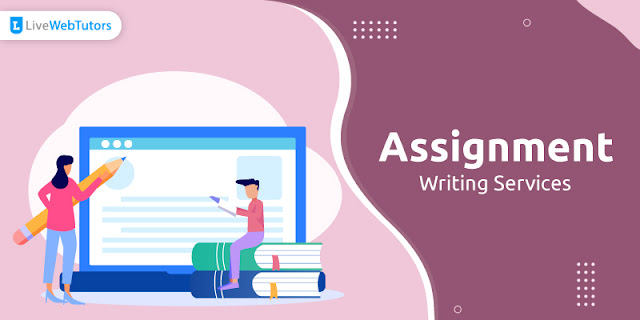Overcoming Your Fear of Assignment Writing
Informal writing is short one being specific without any instructor
response benefiting the writer. Thus, enormous writing activities can help students
in gaining critical thinking skills through self-questioning, critique, and
brainstorming with ideas.
Considering the readers and structuring formal writing is an audience-based
skill. Which helps in the development of students’ literacy. If you personally
don't know for whom you are writing where formal writing comes into the picture.
Being complex than informal writing it is considered a serious form of
writing. In formal style showing respect to the audience is more important when you
are writing it academically or professionally.
This reflects that sentences formation is not usual but more
complex with hyper- fluency highlighting that you are more aware of the subject
matter. If you are not aware of whether it's formal or informal, use the general
thumb rule of continuing it formally. Generally, writing fails because you don't
have something to say or we are more concerned about the specifications of
drafting.
Thus, to avoid such problems follow the suggestions given below so that you will find the assignments more interesting, meaningful, and profitable.
- Informative Sense: Main focus is students or researchers should be able to understand or assimilate the particular subject.
- Argumentative Thinking: Students should be able to claim that a particular subject had been assimilated by him through appropriate evidence.
- Reflective Mind: Students should benefit from the learning experience in the practical world by articulating what had been taught.
- Expressing Ideas: Students should be able to consider the relevance of their personal experience and how to get it into reality.
A concrete analysis is a skill that cannot be incurred by all. But a daily practice can develop informational, argumentative, or expressive perspectives in those who are focusing on their analytical ability.
Developing a central idea is most important by knowing what type of writing can be expected from students. These ideas can be reviewed through their writing realizing how difficult for them in determining the true essence of assignment work. Once students get used to the regular discussion, reading, writing, and test they will realize what they actually want to say and where to start and end it.
A set of essay instructions can ask students to follow through on
these kinds of reviews and explorations to arrive at a working central idea.
Students can be encouraged to begin with a working central idea in order to
develop a preliminary draft. Ideas might be roughly sketched out, to begin with
using the following seed sentences as frames:
A set of varied assignment writings can be advisable for students to review and explore their own ideas. For preliminary drafting, they can be encouraged by going through rigorous brainstorming sessions. They can come out with rigid framed questions like
- Shall I consider a reader for an effective assignment?
- Should the reader be considered while completing the assignment?
- Is the reader completely or partially informed about the subject?
- Will readers consider values different or similar to the writer?
- How many readers can grab the subject or topic while going through it?
Such considerations will develop a productive approach in students who
can determine the form and style of their choice.
Once brainstorming of ideas is done, the audience is established, along with the purpose of the assignment students can focus on the structural aspect of it. The following structure is advisable for effective writing.
- Formulate Thesis or Support: Students should focus on providing a series of ideas with examples, facts, testimonials, quotations, statistics, and other imperial details after introducing the subject or topic.
- Identify Problem or Solution: Students need to first focus on the nature of problems and then provide an effective solution to them which carries the major idea behind assignment writing. A situation can be created by highlighting the problem and proposing a claim over it. The pros and cons of the proposed solution shall be thoroughly laid down.
- Seek Questions or Answers: Possible questions should be raised and answers should be addressed once proper analysis of the idea is worked out. You can put yourself in the shoes of your audience and address their problems directly. This shows the author as coming from a place of understanding their situation.
- Work out Narrative or Analysis: A thorough analysis or argument can be developed by structuring story techniques based on happened or happening events. You can get into the reader's shoes and address their problems directly. Which reflects the thorough knowledge with regards to understanding and assimilation of a given topic by an author.
Finally, assignment writing services can be
accompanied by models which gives an exceptional touch to the writer's pov. The most
important thing for writing is not having something to say, but it’s also
making sure that what you say can be understood well.



Comments
Post a Comment